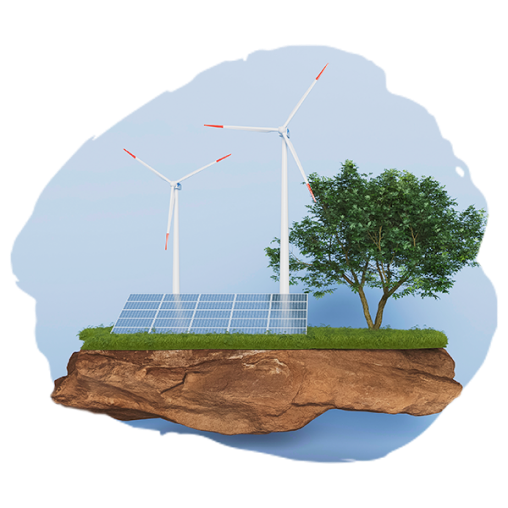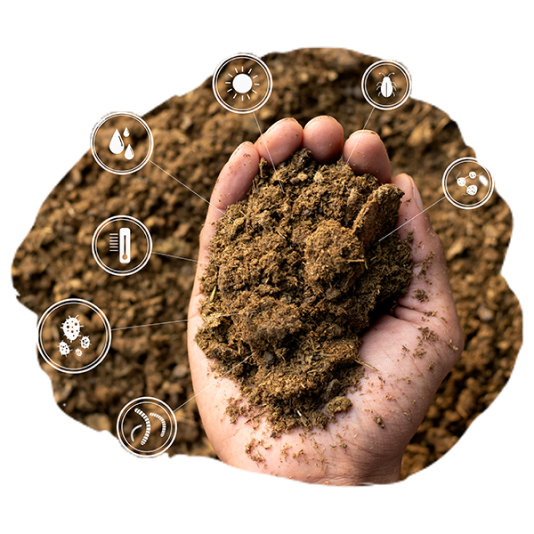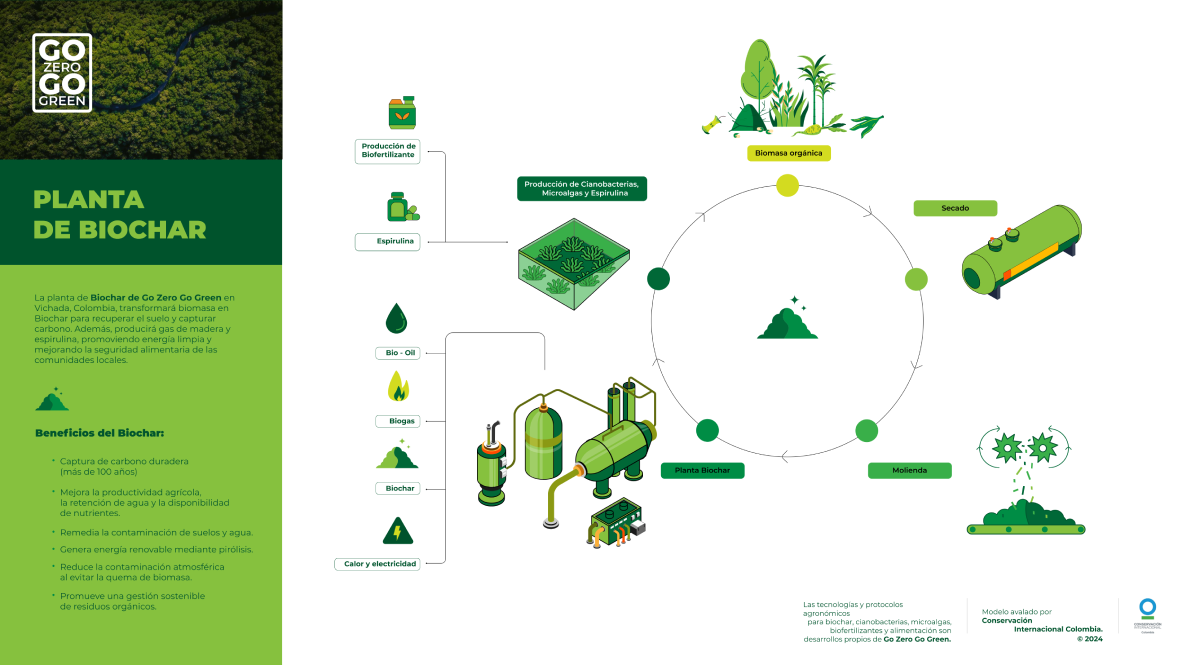Biochar and soils
Biochar: present and future
Our commitment to Biochar
Go Zero Go Green bets on Biochar as a solution against climate change and to recover degraded soils. This charcoal improves the soil, increases plant production and stores carbon, reducing CO2 emissions. It also transforms biomass into a useful resource, offering a sustainable alternative for waste management.
Carbon capture with Biochar begins with plant photosynthesis, which extracts CO2 from the air. The resulting biomass undergoes pyrolysis, converting it into Biochar, which stabilizes the carbon and prevents its decomposition. By incorporating Biochar into the soil or into products, carbon is sequestered for more than 100 years, helping in the fight against climate change.

The multiple benefits of Biochar:

Carbon Capture:

Agricultural Productivity:
Improves water and nutrient retention in soils, restoring degraded soils.

Renewable Energy:
Biochar production generates biogas that can be used as renewable energy.

Air Pollution Reduction:
Reduces pollution by avoiding biomass burning.

Sustainable Waste Management:
Helps divert organic waste from landfills, promoting environmentally friendly management and avoiding methane generation.
Biochar Plant
A Sustainable Lifecycle
A key element of our project is the Biochar plant that Go Zero Go Green is building in Vichada, Colombia. This plant will transform biomass into biochar and biofertilizers, promoting soil regeneration and carbon sequestration. It will also produce wood gas, contributing to the generation of clean energy, and spirulina as a biostimulant.
More information coming soon!

reversing desertification
Improved soils
Go Zero Go Green is at the forefront in the treatment of degraded soils, using innovative techniques such as Biochar, beneficial microorganisms and biofertilizers to revitalize soils and promote carbon sequestration. We work in partnership with local communities to ensure the long-term sustainability and success of our regeneration projects.


